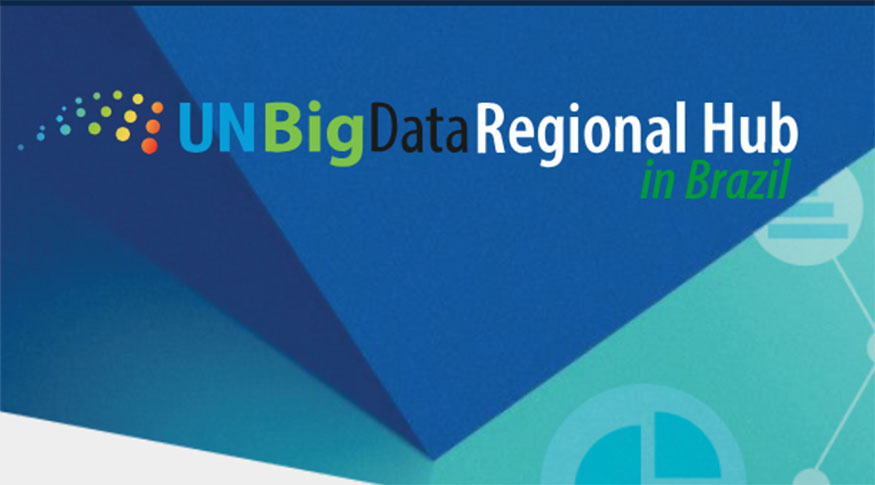ENCE
Children's climate risk is addressed by webinars at Regional Hub for Big Data
April 08, 2025 10h00 AM | Last Updated: April 09, 2025 09h47 AM

The UN Regional Hub for Big Data in Brazil is developing a series of webinars on the production of climate change indicators. The next seminar will be on April 16, at 11 am, and will address the use of technologies to analyze children's exposure to climate, environmental and geophysical risks.
Registration is free and is now open. To participate, simply register at https://hub.ibge.gov.br/index_port.htm. The event will be broadcast in Spanish. Undergraduate students from ENCE will have hours of complementary activities automatically entered into the system as long as they identify themselves with their full name and registration number when registering for the event. They also should attend the event until the end to have the hours counted.
Speaker Alberto Sibileau will present the work of UNICEF's Data and Analytics team in developing global risk exposure layers. These geospatial datasets systematically assess children's exposure to climate, environmental and geophysical risks around the world. The session will highlight two applications: the Children's Climate Risk Index and the WASH Insecurity Analysis, demonstrating how data analytics and geospatial technologies can identify climate risks, prioritize interventions, and inform evidence-based policies.

Alberto Sibileau is a data engineering consultant at UNICEF’s Frontier Data and Technology Unit, a member of the Data and Analytics team, and holds a PhD in Computational Mechanics. At UNICEF, he specialized in developing data pipelines and analyzing large-scale geospatial data, contributing to the implementation of composite indices such as the Children's Climate Risk Index and the WASH Insecurity Analysis.
Climate Change Indicator Series
The Regional Hub for Big Data is hosting a series of webinars to share experiences in using new data sources and technologies for climate change mitigation. Topics covered include biodiversity, tourism sustainability, and the integration of geospatial information for land use monitoring. Sessions are in Spanish or English, and feature experts from Latin America and the Caribbean, as well as from other regions.
The series began in September 2024 and featured webinars on climate change and disaster metrics, tourism sustainability, hydrogeological disasters, remote sensing and geographic information. The five events brought together 623 participants from 26 countries: Saudi Arabia, Argentina, Aruba, Belize, Bangladesh, Bolivia, Brazil, Chile, Colombia, Costa Rica, Ecuador, El Salvador, Slovenia, Guatemala, Honduras, Jamaica, Mexico, Nicaragua, the Netherlands, Panama, Paraguay, Peru, the Dominican Republic, Trinidad and Tobago, Uruguay, and Venezuela. Recordings are available on the Hub's website. The series will continue with monthly webinars until July 2025.
ENCE/IBGE coordinates UN Regional Hub for Big Data in Brazil

Resulting from a partnership between the IBGE and the UN Statistics Division, the UN Regional Hub for Big Data in Brazil (https://hub.ibge.gov.br) was launched in November 2021 at the 11th Statistical Conference of the Americas, held by the Economic Commission for Latin America and the Caribbean (ECLAC). The Hub is hosted by the National School of Statistical Sciences (ENCE), the academic arm of the IBGE, which coordinates the efforts and contributions of the different areas of the Institute in supporting the activities of the Regional Hub.
The project aims at contributing to the advancement of the use of big data to improve the production of official statistics, promoting knowledge sharing and the development of innovative initiatives in Latin America and the Caribbean. In addition to Brazil, four other countries are also part of the initiative as hosts of regional or global hubs: the United Arab Emirates, Indonesia, Rwanda, and China.




















